As rack, stack and cable-style deployments become rarer, many resellers and system integrators are looking to diversify into managed services. But services still need hardware to run on. If you’re not going purely public cloud, where do you put your gear?
Luckily, there is a host of co-location providers gunning for channel business. Many are elevating themselves from simple real estate agents to full-blown vendors in their own right, courting partners with proper enablement programs.
CRN spoke to a range of co-location providers with facilities in Australia to find out what’s available and how you should go about selecting a co-location partner for your managed services business.
Inside this article:
Choosing a co-location provider
There is a huge number of variables to consider when investigating which co-location facility is the ideal home for your IT environment. While each scenario is unique, there are some key factors to consider when making your choice
1. Location
One obvious constraint on your options is the location of data centre facilities. Sydney and Melbourne, as Australia’s most populous cities, have the most variety and the largest capacities, but there are options for other locations such as Canberra, Brisbane and Perth. Be aware of how close, or how far away, a facility needs to be for customers. Replication software often has requirements on low-latency – meaning closer is better – but disaster recovery requirements often mandate a minimum safe distance.
2. Capacity
The second major consideration is your capacity and scale requirement. Do you need three rack units, or three rows of racks? Two kilowatts of power, or a few hundred? Options for large-scale deployments are limited outside Sydney and Melbourne, but smaller footprint requirements can make some of the larger facilities less appealing.
3. Interconnect
Another major consideration is your interconnection requirement. Do you need to use AWS DirectConnect, Azure ExpressRoute or other public cloud high-speed interconnections? Do you need to inter-connect to a lot of other providers to create a bundled service? The network interconnection options will likely feature more highly if this is the case, compared to providing a self-contained service to specific customers.
Next: NextDC
NextDC
Publicly listed Australia provider NextDC prides itself on technical innovation.
“We have a number of what we believe to be technical innovations that put us right at the top of the list when it comes to the most advanced data centres in this country,” says the company’s general manager, national partnership strategy, Steve Martin. These include diesel-rotary UPS systems that power both the racks and the cooling systems 100 percent of the time, helping to ensure NextDC can meet its 100 percent up-time guarantee to customers.
A guarantee is all very well, but calling in the lawyers to negotiate a penalty after you’ve suffered a multi-hour outage doesn’t help your cashflow. You need to know that you can trust your vendor to deliver, and the team at NextDC believes it has earned that trust.
“We have five data centres, and over the last five years we’ve not had one minute of downtime across any of those five data centres,” says Martin. While past performance is no guarantee of future performance, Martin encourages prospective customers to visit the NextDC facilities to see for themselves how NextDC manages its operations.
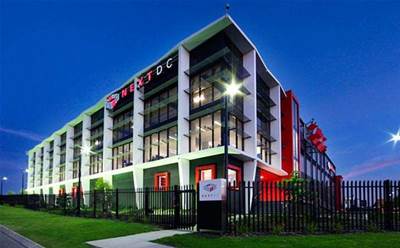
NextDC also focuses on the ICT market, with a strong channel program. “We do not compete with our channel partners,” Martin says. “NextDC does not operate a managed service or a hosted service. We don’t operate a cloud. We don’t operate any of the sorts of services that would compete with our partner ecosystem. We believe it’s the job of our partners to build and offer any of those types of services to their customers.”
Martin’s top tip for evaluating a co-location provider is to see it for yourself. “A data centre decision is a long-term decision. It’s a partnership that will last for many, many years.
“It’s important to physically take the time to have a look, and really get an understanding of what the differences are between the different data centres that are offering services in the marketplace.”
Next: Equinix
Equinix
Equinix is a well-known global provider of data centre space, with 145 sites around the world. In recent years, the company has been particularly focused on building up its internal marketplace capability. Essentially an app store, it’s a private market where Equinix customers and partners can trade services with one another, even bundling together offerings and selling them back through the same marketplace.
“We see one of the most important reasons that people come to a data centre like Equinix is to interconnect with others,” says Jeremy Deutsch, managing director of Equinix Australia. “When you’re building up a solution for your IT environment you need connectivity to a lot of different parties – be those managed service providers, telecommunications providers, even cloud providers.”
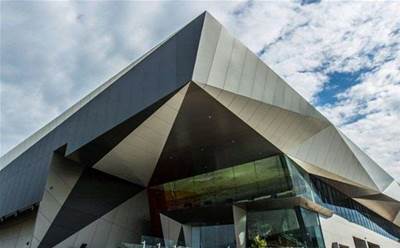
Deutsch says that Australian enterprises are increasingly interested in interconnected solutions. “What we’re seeing is Australian enterprise customers are looking for hybrid multi-cloud.”
But while enterprises would like to have hybrid multi-cloud (a tricky proposition when definitions are so changeable, as all things cloud are right now) they often lack the skills to build or manage the solutions themselves. “To leverage it properly they often need that managed service provider to help them on the journey,” Deutsch says, which creates an opportunity for the channel.
“We have a channel partner program that allows full solution providers – so managed service providers – to come in and bundle up the Equinix proposition, the interconnection and also the data centre services, and then build a full solution for their end customers,” says Deutsch.
Deutsch believes the key advantage of Equinix is the ability to interconnect with others and build a full solution set. “I think that is something quite unique that Equinix provides to managed service providers.”
Next: Digital Realty
Digital Realty
Digital Realty is the wholesale supplier in the market. “We have more square footage of space than even Equinix,” says Omer Wilson, marketing director APAC for Digital Realty. “We’re larger than any other player out there.”
This large amount of space means that Digital Realty plays at the high-scale end of the market, providing space to public cloud providers as well as other service providers. “Equinix is a customer,” says Wilson. “IBM SoftLayer is our largest customer globally.”
“We measure opportunity size by the kilowatt,” says Wilson, who views four or five racks as “very small”. Digital Realty thus suits only large enterprises or cloud providers who need quite a lot of space, or are looking to grow rapidly and need a wholesale provider. “We’re looking for any of the mid-size, growing cloud providers. We’re very much looking to grow that network and welcome them into our buildings.”
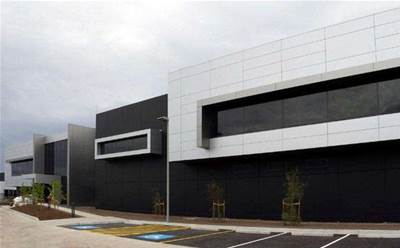
That’s just how SoftLayer originally started, before being acquired by IBM. Wilson also mentions Facebook as another customer that started small and then grew to be very large indeed. For those who are looking for more modest amounts of space, Wilson says there is still value in talking to Digital Realty.
“We provide co-lo down to a certain size, and then we work with our partners [to provide smaller amounts],” he says. But even if Digital Realty itself does not have the right solution, the company may be able to advise MSPs on other suitable companies in their network. “We have so many different cloud providers in our network,” he says. “You can ask us ‘This is how much space I need, what would you advise as Digital Realty?’”
Wilson’s advice for evaluating a co-location provider is to be aware of the reliability and security of the facility. “You are giving them one of your most important assets, if not the most important asset, which is your data.”
Next: Vocus
Vocus
By its own admission, Vocus is more of a niche provider. While it doesn’t offer 4,000-plus rack facilities, it does have a large spread. “If customers have a requirement for, say, a data centre in Auckland and Melbourne and Perth, we can certainly deliver that,” says Adam Gardner, general manager, data centres.
High density is another feature offered in Vocus data centres. “We can support up to 30kW in a rack,” says Gardner. The animated movie Happy Feet was rendered in Vocus’ Alexandria facility using 300kW over 10 racks.
Vocus is also happy to support customers who have fairly modest requirements, half a rack, or even two to four rack units. “We can get quite granular in terms of how much capacity [customers] need,” Gardner says.
“Being a telco more than just a co-lo provider, we can provide that end-to-end connectivity as well, rather than having to go to multiple parties. You can come to us and get co-lo plus fibre to your site,” says Gardner.
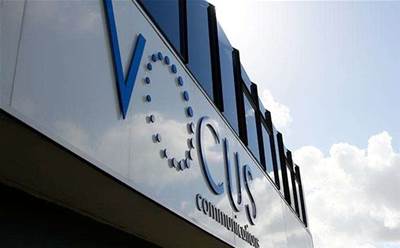
Vocus has strong networking capabilities, given its heritage as a telco. “We have the most BGP [border gateway protocol] adjacencies in the country,” Gardner says, which ensures Vocus can provide the high-speed, low-latency links into public cloud providers that are expected of co-location providers these days.
“We are also carrier neutral,” says Gardner, “so while we have our own co-location facilities and would prefer people to have Vocus as their provider, we don’t prevent any other providers from coming into our data centres and look to win the business by being more competitive.”
Vocus has a partner program, which recently launched Australia-wide following its acquisition of Amcom. Gardner’s top tip for evaluating a provider is to check how its operations actually function. “If you have an issue in a facility, whether that’s comms or otherwise, you need to be able to get a hold of somebody, not sit in a ticketing queue for three weeks.”
“One of the big things we have at Vocus is that you can talk to the head of the business unit,” he says. “If you want to pick up the phone and talk to me, I will take that call.”
Next: GlobalSwitch
GlobalSwitch
GlobalSwitch bills itself as “the leading provider of highly resilient carrier and cloud neutral data centre space throughput Europe and Asia Pacific”.
The company has announced that it has commenced construction of the last two stages of its Sydney East facility, “following a pre-commitment from a leading cloud provider”. The new facility is located right next to its existing Sydney West facility, on the edge of the Sydney CBD.
“Our facilities are highly connected with our Sydney campus’ location on the edge of the CBD giving it a carrier network density and low-latency environment difficult to replicate in data centres further from the CBD,” says Damon Reid, GlobalSwitch managing director, Sydney.
GlobalSwitch is focused on providing power and space in a secured and well--networked facility. “We do not dilute that focus by attempting to provide solutions best left to subject matter experts such as managed services, cloud or telecommunications services,” says Reid.
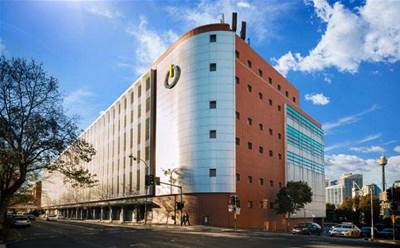
GlobalSwitch is also focused on providing customers with economies of scale by consolidating their data centre requirements within a single facility. “The scale of our facilities – and in particular our Sydney campus – provides a diverse ecosystem that greatly assists our customers to operate their data centres and data requirements more cost effectively than if they were diluted across numerous smaller data centres,” Reid says.
Reid says that while GlobalSwitch doesn’t have a formal channel program, the company does work closely with customers “where appropriate to assist them on opportunities they may be working on”. He said that several reasonably large commitments were secured last year as a result of this kind of cooperation.
Reid’s advice for what to focus on when choosing a provider is to look at matching supplier expertise with your specific needs. “This is critical to ensuring you contract into a relationship that can support you through the many years that you will be them.”
Next: Service providers speak
What does a service provider say? Rackspace
Well-known hosting provider Rackspace uses both Digital Realty and Equinix facilities in Sydney to provide its Australian services. Angus Dorney, Rackspace ANZ general manager, says that the Digital Realty facility is used as the company's primary site, while the Equinix site is used for disaster recovery.
“We feel as though there are benefits to maintaining multiple relationships,” Dorney says. “A big factor is diversity and redundancy in our vendor and partner networks.” Rackspace, being a global company, has global relationships with both Digital Realty and Equinix.
“The standards Rackspace demands from any of our data centre providers are consistent no matter who the data centre provider is,” says Dorney. “We have great relationships with both.”
Dorney highlights an interesting constraint when it comes to the geographical location of co-location services. Many enterprise customers use infrastructure and software with particular requirements for replication – think low-latency for virtual machine replication and synchronous storage array replication – which place limits on how far away a data centre can be from a customer’s primary site.
There are pure physical limits to what technology can achieve, so be aware of what customers are using if you plan to offer services to them. Remote replication can be too far away.
What does a service provider say? VMtech
VMtech has chosen Equinix as its preferred supplier for co-location facilities, and uses both the Sydney and Melbourne facilities to provide services to customers. The fast-growing IT solution provider landed at No.16 in the 2015 CRN Fast50 with 87 percent growth to hit $20 million revenue in 2015. The company also took home the coveted Editor's Award.
VMtech’s private cloud hosting business has been growing strongly, so strongly that it may create a capacity issue for the company as the Equinix SY3 facility nears its capacity limits. Equinix has already begun building another facility, SY4, but VMtech is aware of the possibility that the company may need to explore other options.
“Obviously our business and supporting our customers comes first,” says VMtech’s technical director, Richard Clark, “However, wherever possible, we want to maintain Equinix as our preferred supplier.” Clark cites the network connectivity of Equinix, particularly its connectivity into public clouds, as very important to VMtech’s business.
“We’ve heavily invested in our infrastructure within Equinix facilities,” says Clark, “and standing up additional data centres would mean that we’d need to extend our networks and base infrastructure into additional facilities.” He also notes that most workloads can be served from Melbourne, and locating in Sydney is frequently a case of customer preference to keep their infrastructure nearby, rather than any technical requirement. For all the talk of moving to cloud, it seems people still like to keep tabs on their servers.
Others
We’ve just scratched the surface of the offerings available in the Australian marketplace. Other providers to consider include:
- Fujitsu
- HP Enterprise
- Canberra Data Centres
- Macquarie Telecom
- Metronode




.png&h=142&w=230&c=1&s=1)

_(21).jpg&h=142&w=230&c=1&s=1)
.jpg&h=142&w=230&c=1&s=1)
_(27).jpg&h=142&w=230&c=1&s=1)




.jpg&w=100&c=1&s=0)








_(1).jpg&q=95&h=298&w=480&c=1&s=1)


